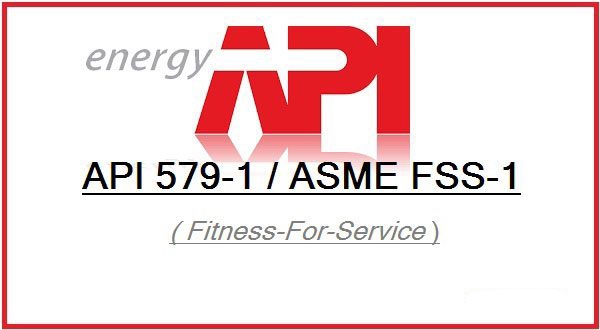News:
Fitness-For-Service (FFS)

Department of Engineering and Advanced Technical Inspection Services of Aria Azmoon Sanat Company, considering the age of oil, gas, petrochemical and refining facilities in the Iran and the need to make maximum use of available resources and equipment with high reliability, to provide FFS services (Fitness-For-Service) For the mentioned industries.
FFS evaluation is a series of quantitative engineering evaluations that are performed to determine and confirm the structural integrity and mechanical integrity of the equipment in service and with cracks or any other defects created during construction or service. Pressure vessels, storage tanks and piping systems are exposed to a variety of degradations over time, which ultimately affects the integrity of the system. Common codes and standards only provide rules and guidelines for the design, manufacture, inspection and testing of new pressure equipment. At present, these codes use empirical rules for accepting the lost and corroded thickness of equipment. As a result, operating units are often stopped by mistake and without really needing to repair or replace equipment. In such circumstances, the implementation of engineering assessments such as Fitness-For-Service (FFS) to check the structural integrity and the possibility of safely extending the life of defective equipment, is useful and necessary at the same time.
API 579-1 / ASME FFS-1 and BS 7910 provide guidance for conducting FFS assessments on refining and petrochemical equipment. These instructions can be used to decide whether it is possible to continue operating, or the need to repair / replace equipment to ensure the safe operation of pressure equipment. The evaluation instructions provided in these standards can be used for FFS evaluations or to estimate and determine the new operating conditions of equipment designed and built in accordance with the following codes:
- ASME BPV code, Section VIII, Division 1
- ASME BPV code, Section VIII, Division 2
- ASME BPV code, Section I
- ASME B31.3 Process Piping code
- ASME B31.1 Power Piping code
- API 650 Welded Steel Tanks for Oil Storage
- API 620 Design and Construction of Large, Welded, Low-Pressure Storage Tanks
The FFS evaluation methods in API 579-1 / ASME FFS-1 and BS 7910 meet both the determination of the current state of integration of the equipment according to the current service conditions and the determination of the remaining life of the equipment. If the results of the FFS evaluation show that the equipment or part in question is suitable for the current operating conditions, the relevant equipment can continue to operate in service if a proper inspection plan is prepared and implemented. If the results of the FFS evaluation show that the equipment or component in question is not suitable for the current operating conditions, the computational methods in API 579-1 / ASME FFS-1 and BS 7910 should be used to determine operating conditions and operating limits. New equipment to be used.
For pressure equipment (such as pressure vessels and piping systems) these calculations can be used to find the reduced value of the maximum allowable working pressure or the corresponding temperature. For parts related to storage tanks (such as shell courses), these computational methods can be used to determine the reduced value of the maximum filling height.
Regarding the position of FFS in the implementation of risk-based inspection technology (RBI), it can be said that the "FFS" assessment completes the executive circle of risk-based inspection projects. FFS guidelines are used to decide whether it is possible to continue operating, or to repair / replace equipment exposed to the demolition mechanisms identified in the RBI implementation process, and, if possible, to determine the remaining life of the defective equipment.
Aria Azmoon Sanat FFS specialists are ready to create significant savings due to reducing the number of unnecessary repairs by providing the following services while increasing the reliability of the equipment during service:
- Provide practical and cost-effective solutions to FFS issues
- Use advanced FFS techniques to extend equipment life
- Evaluate changes in service to improve equipment performance
- Provide effective temporary and permanent repair solutions
- Reduce downtime for repairs
- Provide practical solutions to quickly perform major repairs in an emergency


